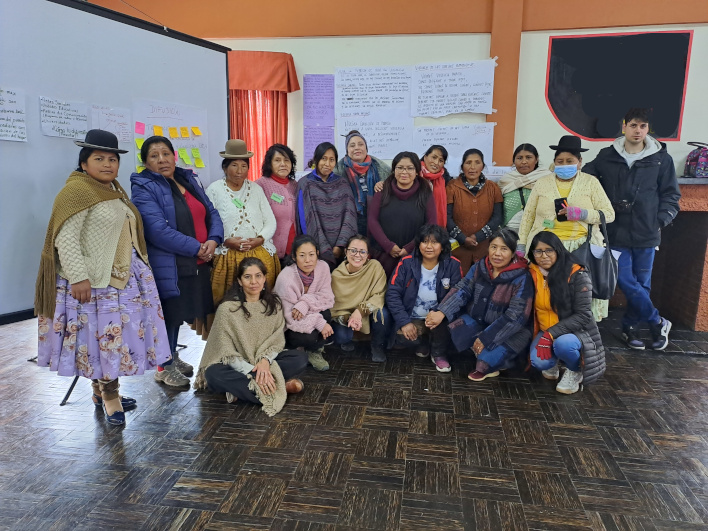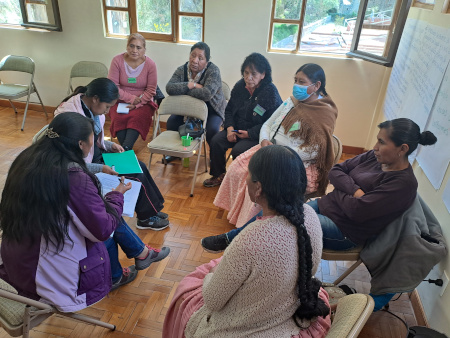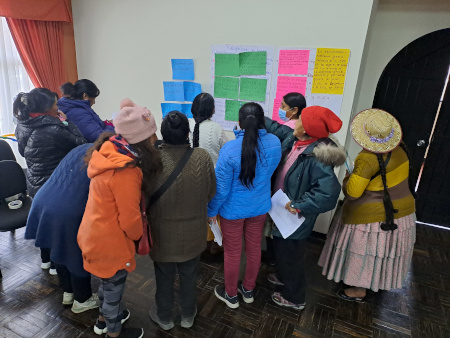Violence against Women in Poverty in Bolivia

“The rights of women living in poverty must no longer be violated. It is our collective responsibility to break the silence, and fight against the humiliation, discrimination, and injustice faced by women in poverty.”
Thus concludes the manifesto on violence against women in Bolivia living in poverty. 23 individuals wrote this text as part of a Merging Knowledge process in Bolivia. This process involved women with lived experiences of poverty, academics, and professionals.
A profound analysis of and reflection upon violence
Over the course of eight months, participants developed an in-depth analysis and reflection on the types of violence against women in Bolivia living in poverty, yet systematically hidden by society. The process produced new knowledge on the subject and important personal transformations for those involved.
- “These spaces of interaction, expression, active listening, and trust allowed us to become fully aware of the injustices experienced as a result of being a woman and, further, being a woman living in poverty”, explained Emma Poma and Soledad Ortiz, two coordinators of the process.

ATD activist Erika Ruiz said:
“It was a privilege to participate in this Merging Knowledge process. As a woman, I felt appreciated and knew my words had value. It gave us confidence and allowed us to share our unique wisdom. Thanks to Merging Knowledge, we learned that we all have equal worth and are all worth gold”.
For Tatiana Aguilar, academic and researcher:
“The dialogue achieved via the Merging Knowledge process restored a necessary humanity to the subject of violence, complementing the academic knowledge. It is a space where different forms of knowledge come together and have equal value. It has been a unique and innovative personal experience that has impacted my life in my role as a daughter, woman, mother, sister, friend, colleague, and as an academic and researcher.”

As a result of the Merging Knowledge process, participants produced a collectively written manifesto. It draws attention to the harshest, most unbearable forms of violence experienced by women living in poverty.
Visible to a wider audience
The process has been a valuable step in identifying patterns of violent and sexist behavior in Bolivia, and we must continue to advance gender equality with a focus on poverty. It is important that the manifesto is shared and made visible to a wider audience. This will, in turn, create more spaces for gender-focused reflection, dialogue, and action, which take into account the additional marginalization and vulnerability faced by women in poverty.

